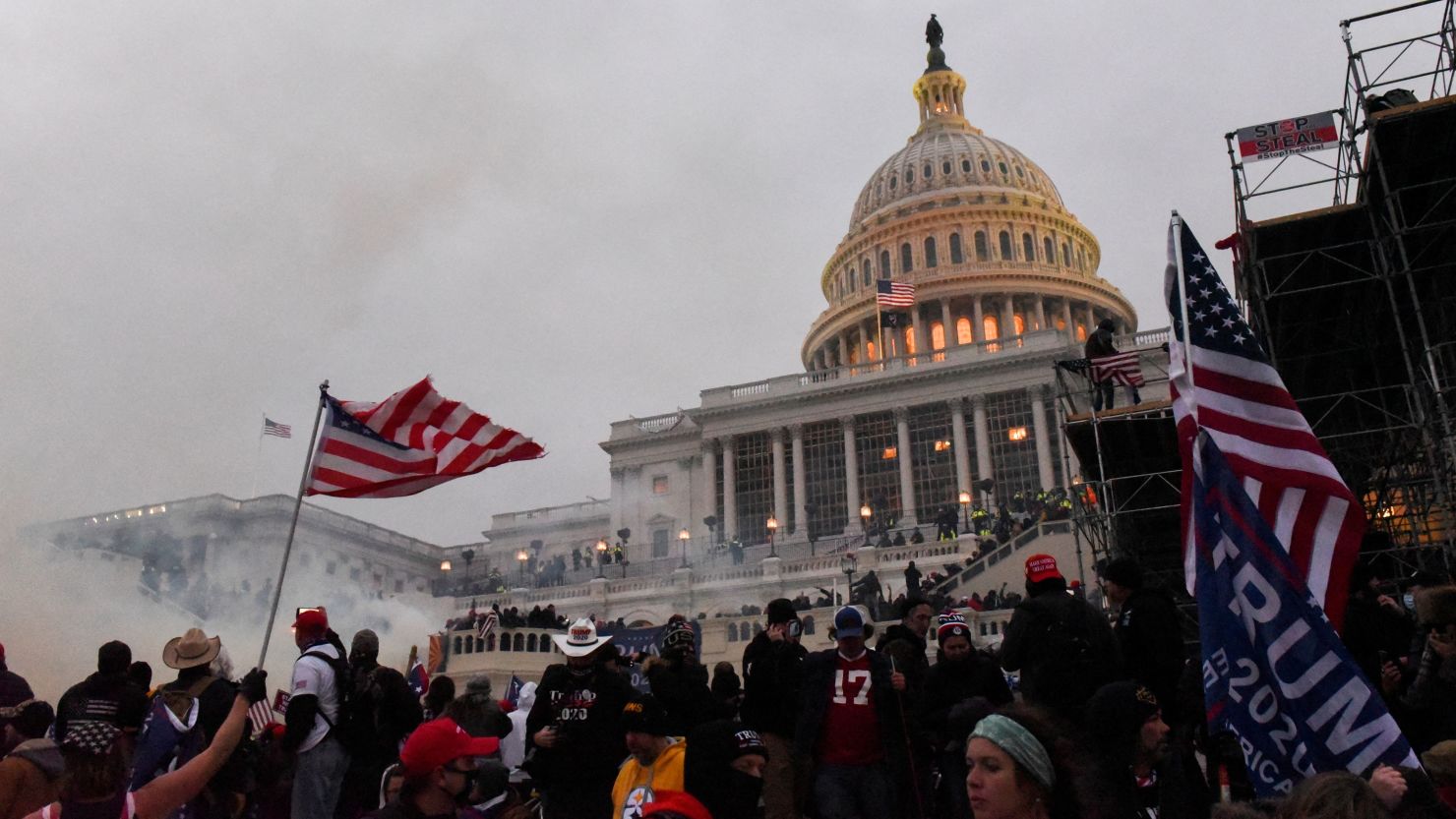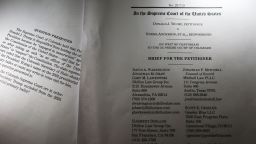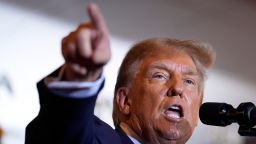The Colorado voters trying to disqualify Donald Trump from the state ballot told the Supreme Court on Friday that the violence the former president provoked on January 6, 2021, qualifies as an insurrection under the terms of the Constitution and bars him from holding future office.
Lawyers for the group of voters filed their brief several days before their deadline of next week, seeking to forcefully respond to Trump’s legal arguments that the President is excluded from the disputed section of the 14th Amendment.
“The most violent attack on our nation’s Capitol since the War of 1812 — an attack which obstructed the peaceful transfer of presidential power for the first time in American history — meets any plausible definition of ‘insurrection against the Constitution,’” the challengers wrote.
Specifically responding to Trump’s leading argument in his brief filed last week, that the president is not an “officer” under the terms of the Constitution, the voters’ lawyers wrote, “Section 3 does not give a free pass to insurrectionist Presidents; they are ‘officers’ because they hold an ‘office.’ And states’ broad authority to regulate presidential elections allows them to exclude constitutionally ineligible candidates from the ballot.”
Section 3 bars certain elected officials, including an “officer of the United States,” from holding “any office” in the future if they have “engaged in insurrection” or aided a rebellion.
In the early pages of their 60-page filing, they also countered Trump lawyers’ warning of the “bedlam” that could follow if the justices were to allow states to block his name from upcoming primary ballots.
“He not-so-subtly threatens ‘bedlam’ if he is not on the ballot,” the lawyers, led by Jason Murray, wrote. “But we already saw the ‘bedlam’ Trump unleashed when he was on the ballot and lost. Section 3 is designed precisely to avoid giving oath-breaking insurrectionists like Trump the power to unleash such mayhem again.”
The challengers also largely reframed the case toward Trump’s “insurrectionist” actions. They showed the justices photos from January 6 and Trump tweets, as they described how Trump “incited a violent mob” that injured more than 140 police officers and forced lawmakers to “flee for their lives.”
Among the photos incorporated was the image of US Capitol Police Officer Daniel Hodges writhing in pain while being squished in a Capitol doorway. He testified in-person at the Colorado disqualification trial about his experience on January 6, including the wounds he suffered during the hours-long battle at the Lower West Terrace of the Capitol.
The voters’ lawyers wrote that the mob “infiltrated the (US Capitol) building through shattered windows” and “erected gallows” outside, while chanting “Hang Mike Pence.” They noted that video of the day was on file at the court.
The challengers said Trump zeroed in on January 6 after his election-related lawsuits failed, “including in this Court.” That reference was to his ill-fated and short-lived Supreme Court case in December 2020 – Texas v. Pennsylvania – which sought to throw out Joe Biden’s legitimate victories in several battleground states.
Oral arguments in the Colorado case are scheduled for February 8.
The Supreme Court agreed earlier this month to hear the case of Trump v. Anderson, accepting the former president’s appeal of the Colorado Supreme Court decision that removed him from that state’s ballot.
Returning repeatedly to Trump’s conduct, the challengers in their brief even compared Trump to a “mob boss” while arguing that his fiery words at the January 6 rally at the Ellipse weren’t protected by the First Amendment.
“The idea that Trump’s words were unlikely to incite imminent lawlessness, even though Trump intended them to do so and even though they in fact did so, fails even the most forgiving of red-face tests,” the challengers wrote. “For obvious reasons, the First Amendment does not protect mob bosses who deliberately incite violence through thinly veiled language they know their audience will understand.”
Trump’s lawyers claim his speech was shielded by longstanding First Amendment precedents because it wasn’t trying to incite imminent violence. The Colorado trial judge disagreed, and her findings were upheld by Colorado’s high court, which concluded that he “intended that his speech would result in the use of violence.”








